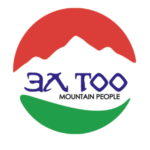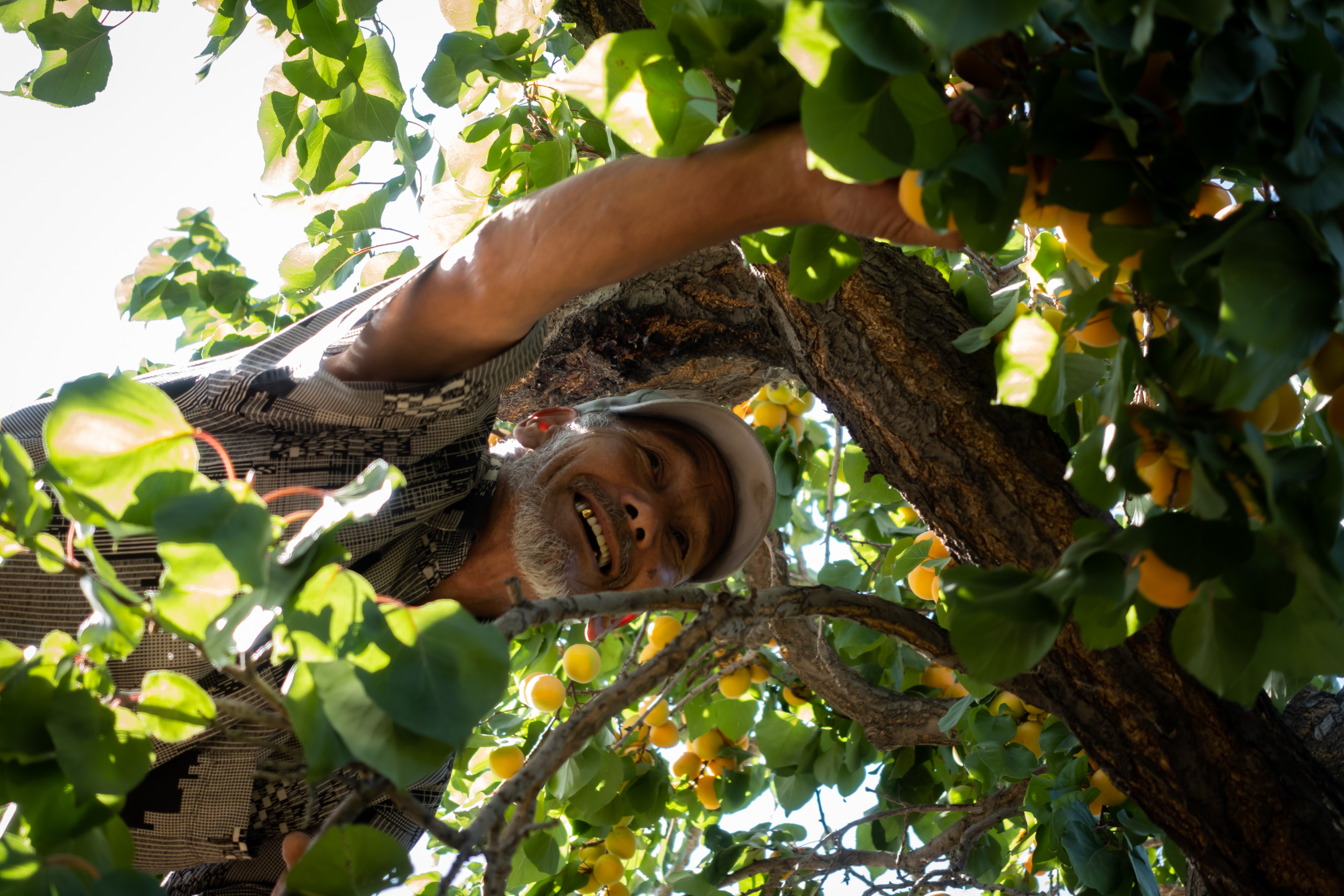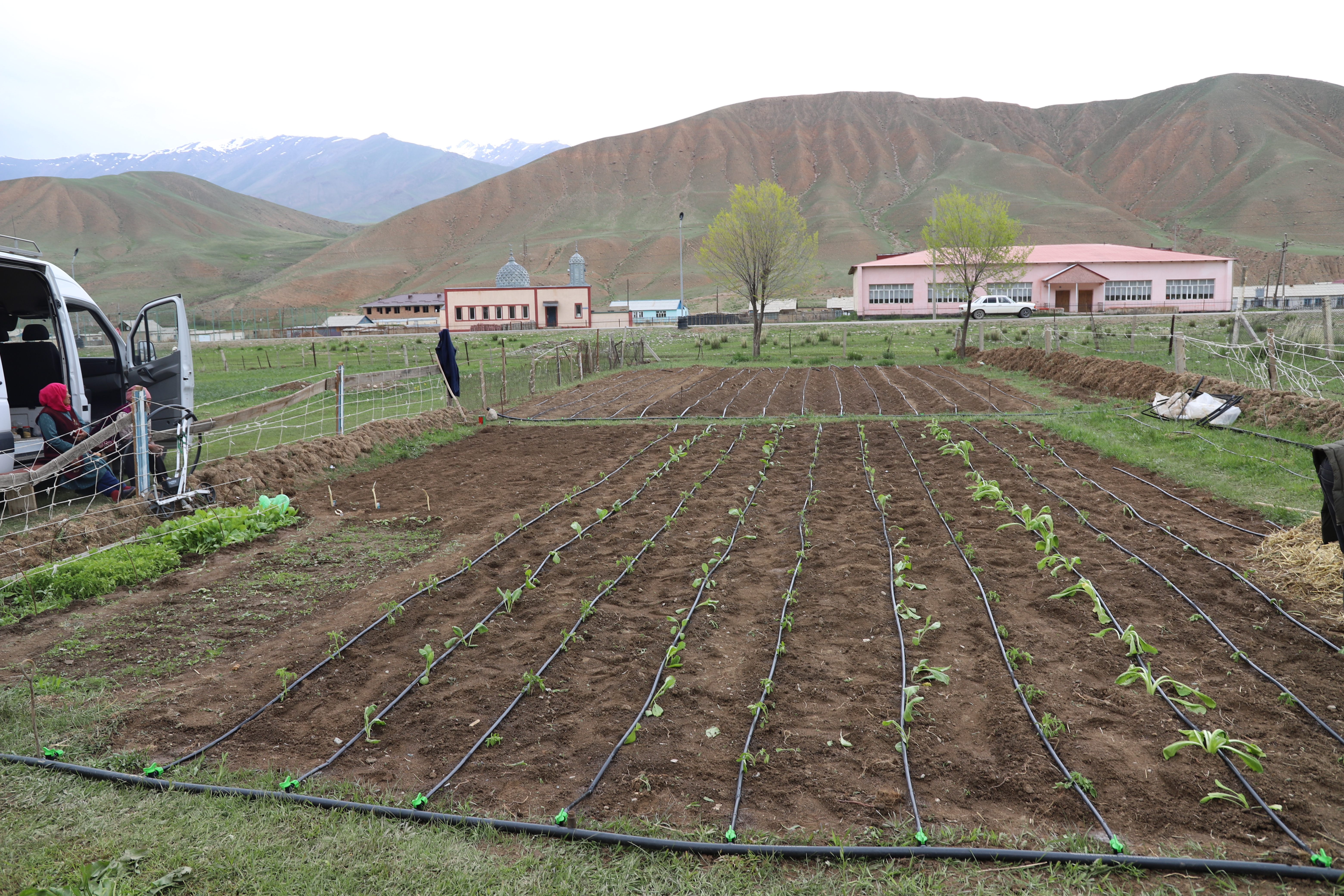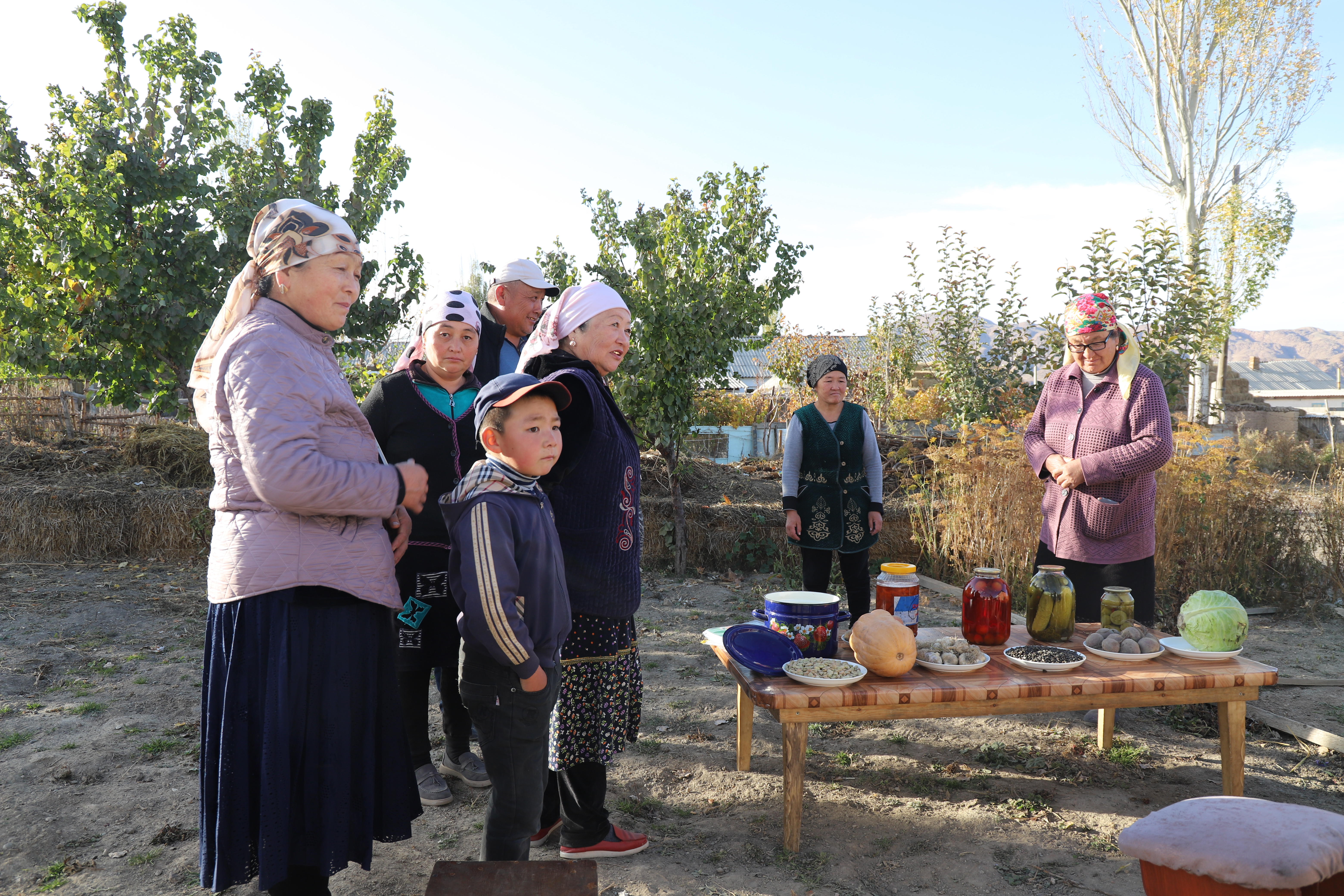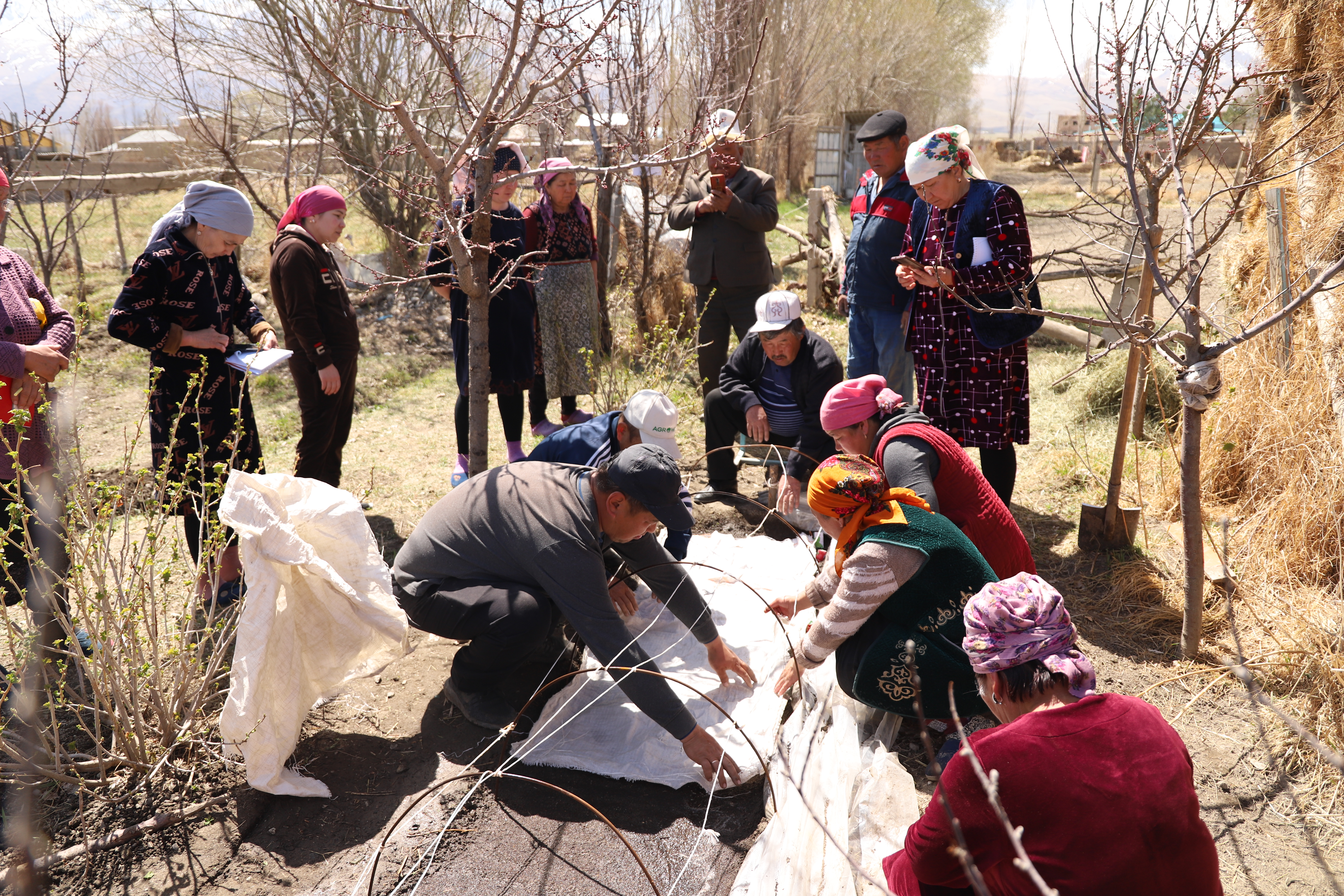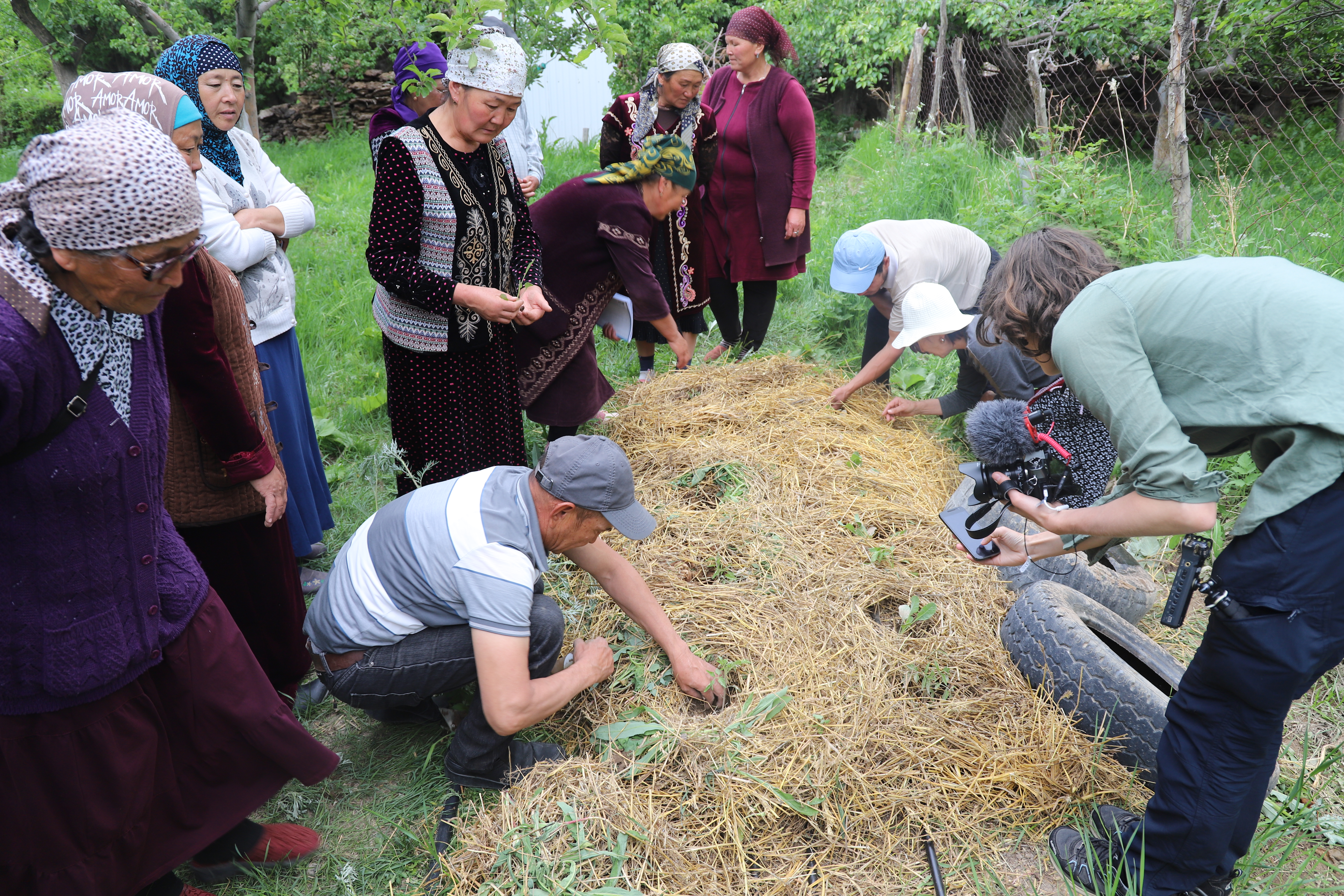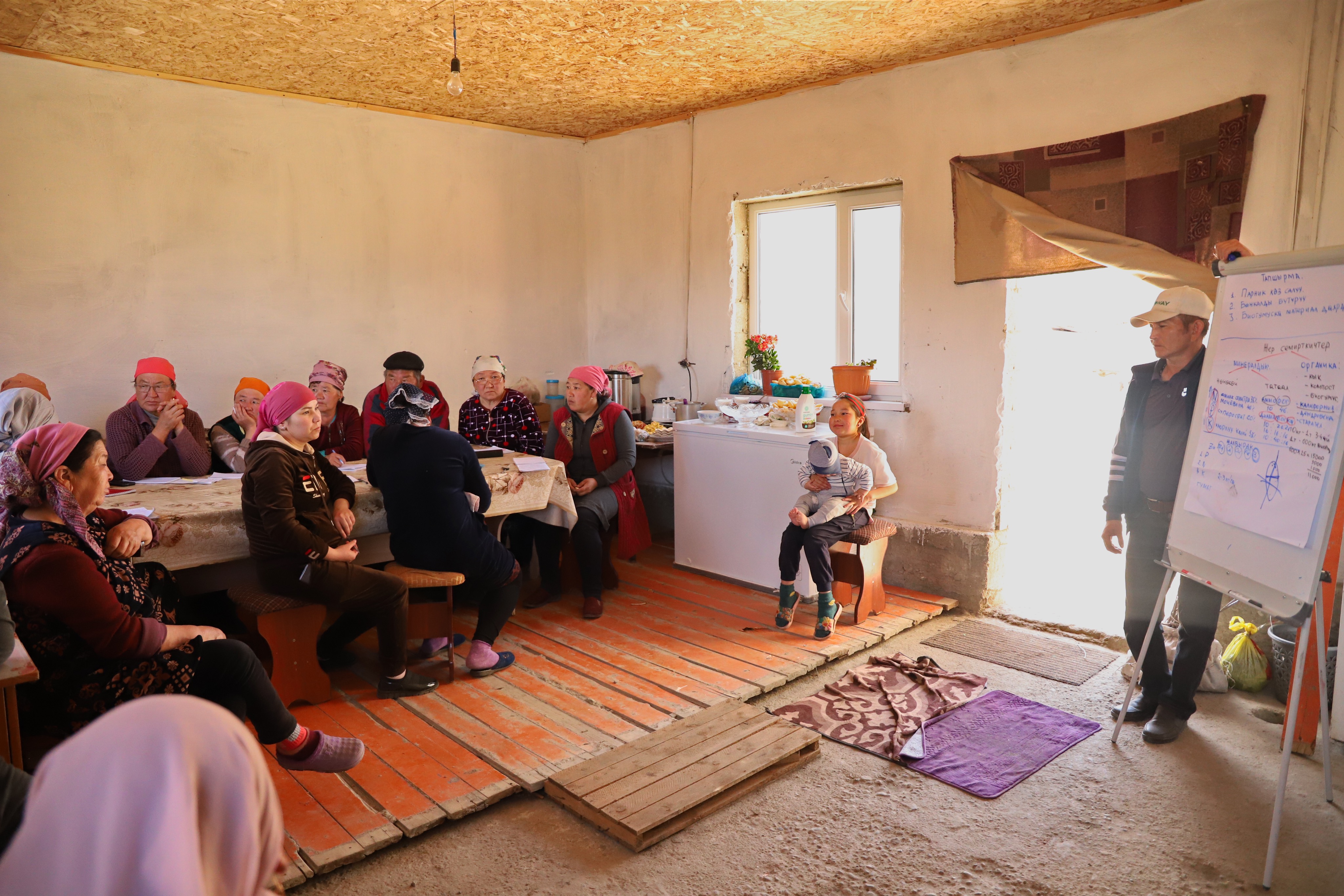In Kyrgyzstan, like other Central Asian countries, there's a pressing issue of water scarcity. Glaciers serve as the main water sources in the region, making their loss not only a national concern but also a regional security issue. Each year, villages receive less snowfall, exacerbating local conflicts over water resources. Floods, mudflows, and landslides are common, worsened by land degradation from overgrazing and excessive pesticide use in agriculture.
Additionally, Kyrgyzstan's water-dependent agriculture is strained by outdated infrastructure. Water shortages are a challenge common to all villages, with limited government and community efforts to adapt to climate change. Despite small-scale farming being prevalent, local communities rely on monocropping, with high-altitude villages specializing in potatoes and semi-desert villages cultivating apricots. Monocropping exacerbates water scarcity, as it requires irrigation and further damages the soil due to the absence of crop rotation and heavy reliance on chemical fertilizers. Climate change has negatively affected farmers in recent years, leading to income losses and pushing many into labor migration due to fluctuating market prices.
Water shortages disproportionately affect women, hindering women from developing kitchen gardens. Despite equal land rights guaranteed by Kyrgyzstan's Land Code, women and youth in rural areas are excluded from decision-making at household, municipal, and political levels. Land ownership is predominantly seen as a male domain, despite women's substantial employment in agriculture. Another challenge is food security. Sixty percent of Kyrgyzstan's children suffer from a limited diet, with 12% under the age of 3 experiencing stunted growth. Local doctors report high rates of anemia among children due to a lack of dietary diversity.
Since 2021, CAG has collaborated with El Too to promote permaculture initiatives in rural communities in Kyrgyzstan. Target villages include areas in semi-desert regions susceptible to floods and mudflows, as well as high-altitude valleys where livestock breeding is prevalent, both sharing similar challenges, notably poor diets and food insecurity.
Since 2023, the collaboration receives its funding from SIDA through ForumCiv's Large Partnership Funding program.
Long-term goal of cooperation
To promote permaculture principles, offering innovative solutions for climate change adaptation and combating ecological issues like biodiversity loss, food insecurity, and environmental degradation. Simultaneously, we work to foster alternative and sustainable income opportunities and address gender inequality.
Main achievements
- Establishment and successful functioning of permaculture gardens, serving as models for other communities and fostering widespread awareness and knowledge of permaculture and climate adaptation practices.
- Increased food security as target communities effectively apply and share permaculture knowledge, ensuring a more diverse and reliable food supply, with 80% of participants continuing to develop vegetable gardens.
- Contributing to economic stability in the communities through the generation of sustainable income opportunities, including selling seedlings, vegetables, and biofertilizers, partnering with ecotourism initiatives, and cash crops.
- Implementation of water-efficient techniques such as drip irrigation and mulching leading to water conservation in semi-desert areas.
- Establishment of a farmers cooperative dedicated to growing fresh vegetables and supplying the mountainous town of Naryn.
- Construction of an innovative gabion dam in a semi-desert area to collect floodwater, potentially benefiting up to 20 communities in the Naryn and Issyk-Kul regions.
Related videos
A video created by El Too summarizing the three years of our partnership in spreading permaculture in Naryn and Issyk-Kul regions of Kyrgyzstan.
Explainer clip focused on water scarcity in Central Asia and on local organizations’ efforts, including El Too, in dealing with this issue.


